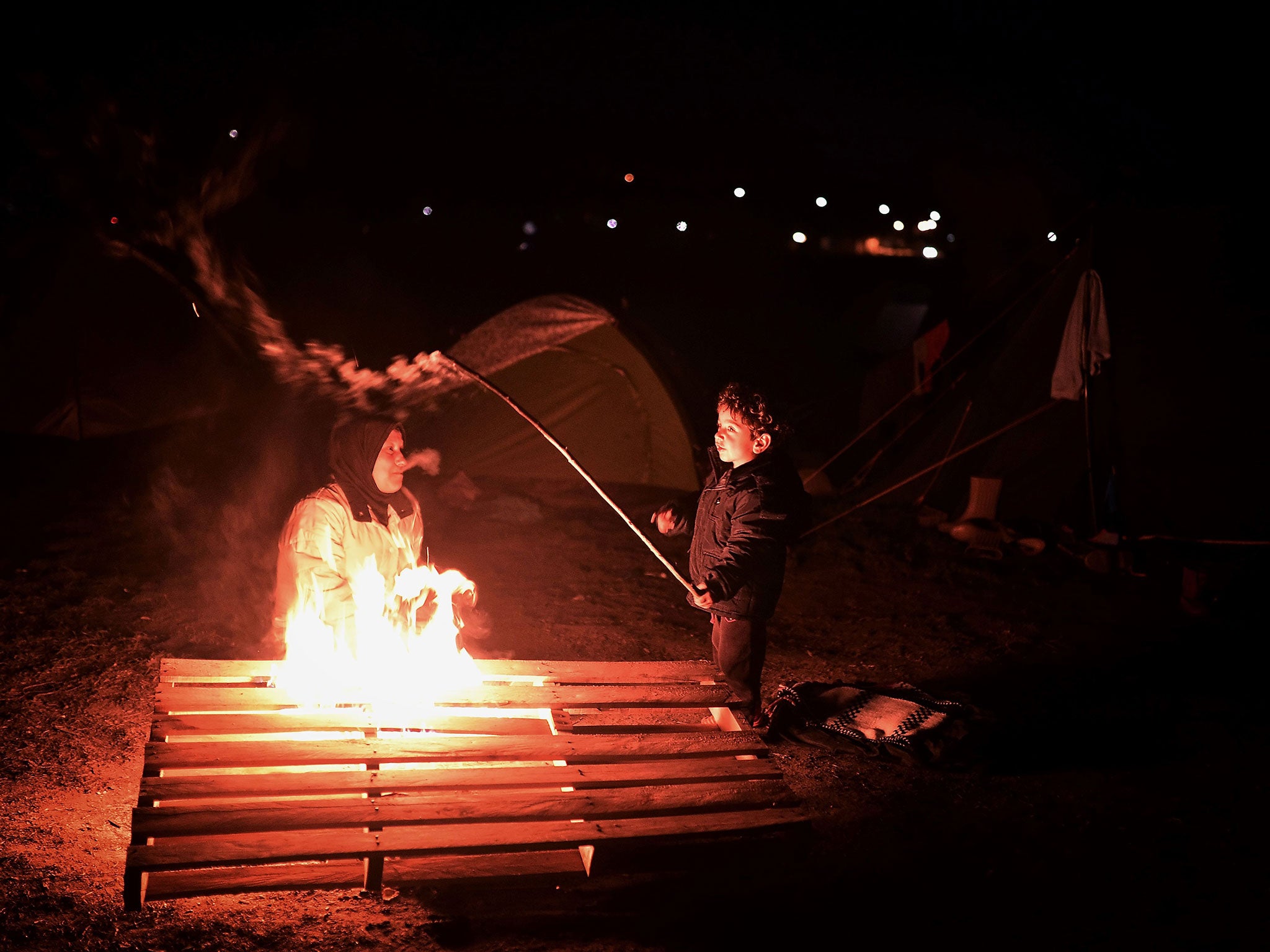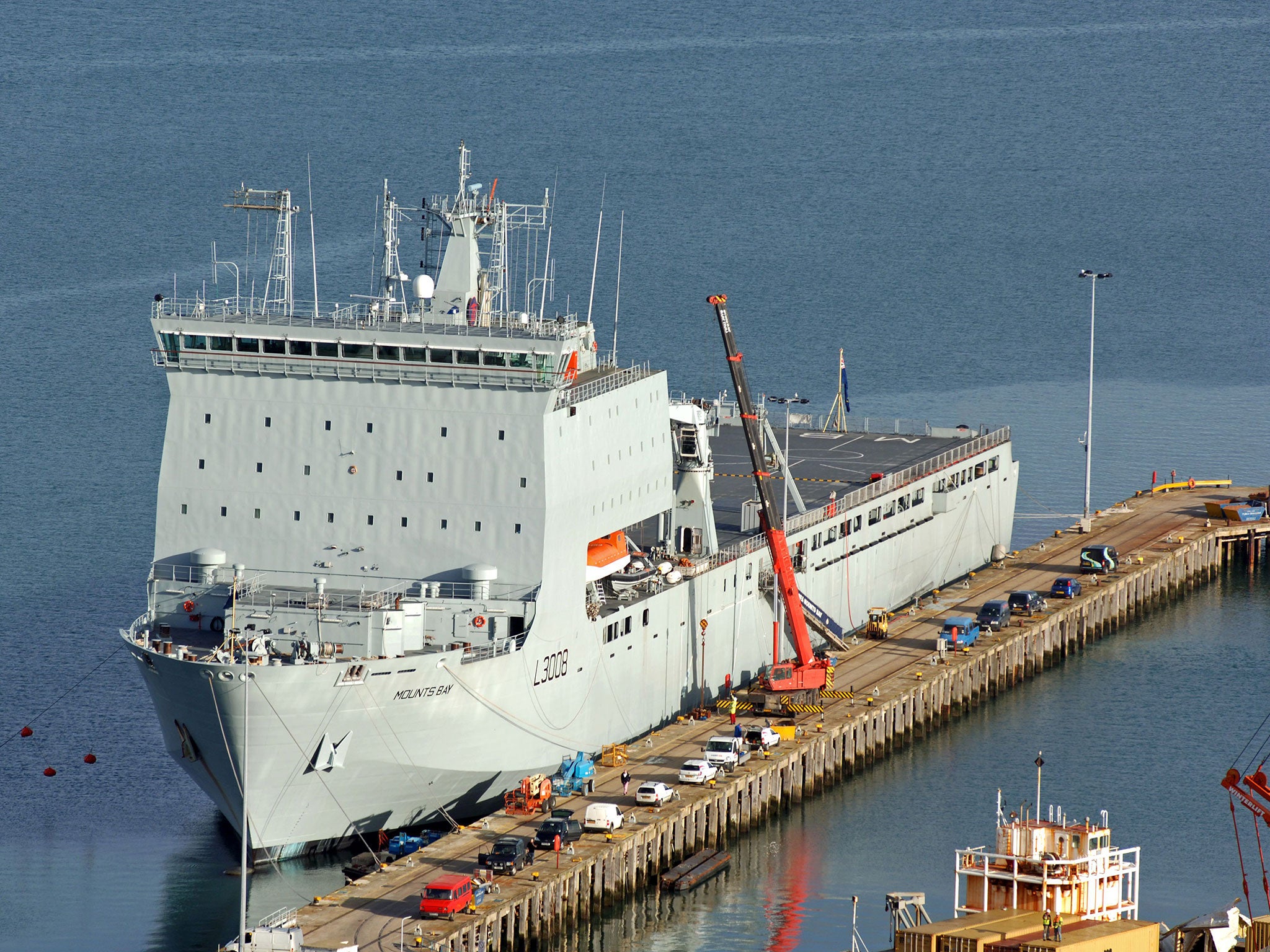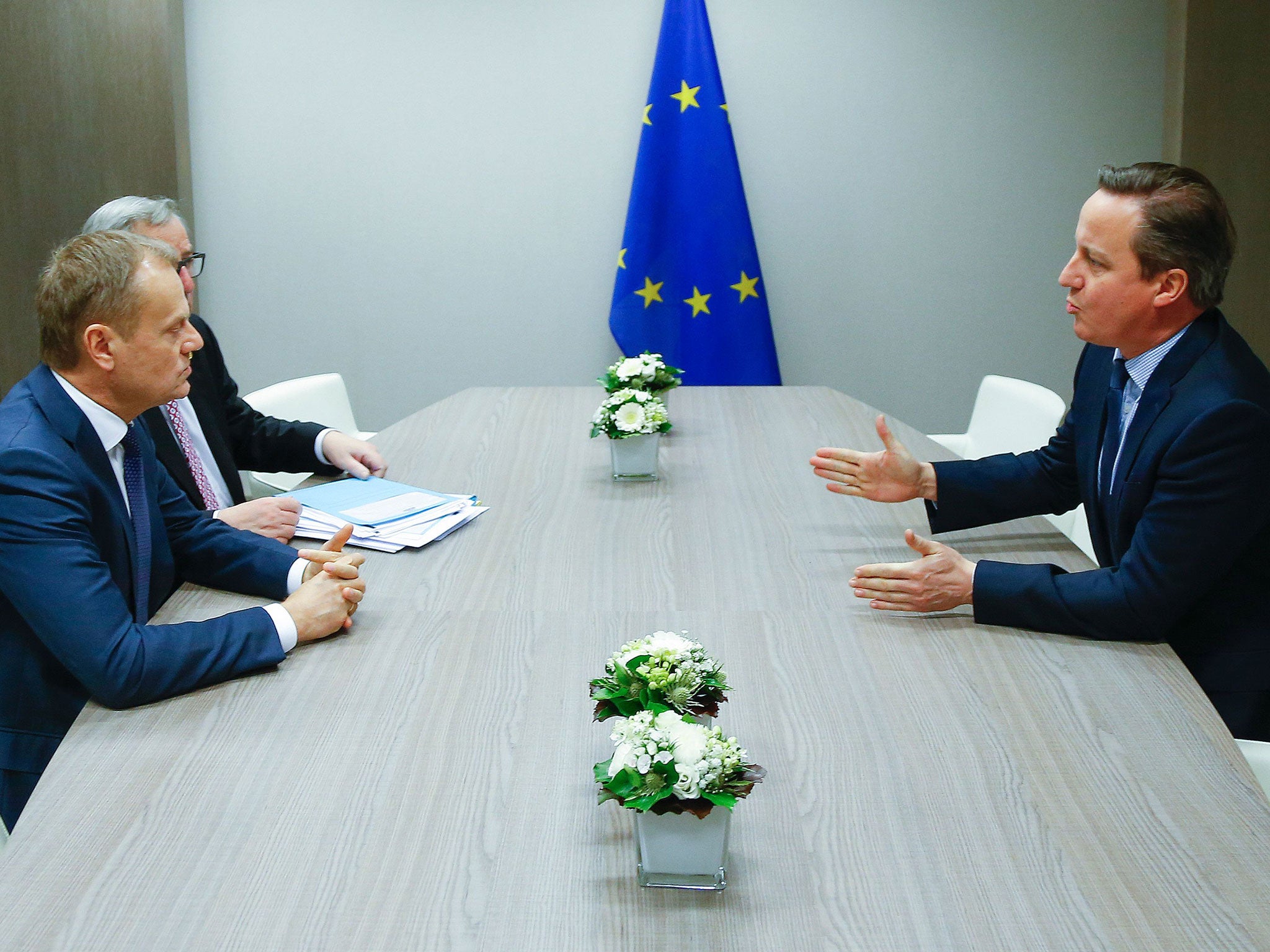Refugee crisis: Royal Navy ship dispatched to Aegean Sea to turn back migrants
Human rights groups have said using Turkey as a 'safe third country' for refugees is absurd

An unprecedented intervention into the migrant crisis in the Aegean Sea will be expanded and joined by a Royal Navy vessel. David Cameron will announce the action on 7 March as desperate European leaders meet in Brussels to try to stop another wave of humanity crossing to the EU from Turkey.
A summit on 7 March in Brussels – the ninth over the past year – will attempt to address the refugee crisis, with leaders now pinning their hopes on a deal with Turkey to prevent more people from attempting the hazardous journey to Europe. The European Council President, Donald Tusk, who chairs the summit, toured the main countries on the western Balkans route last week, including Turkey and Greece, as he attempted to pull together a plan to both prevent refugees from leaving Turkey and send them back if they do land in Greece, Italy or other frontline countries.
The Turkish Prime Minister, Ahmet Davutoglu, who will also attend the summit, has promised to take back all non-Syrians who arrive in Greece. However, human rights groups say the EU is shirking its humanitarian responsibilities by using Turkey as its border guard. “Using Turkey as a ‘safe third country’ is absurd,” said Gauri van Gulik, Amnesty International’s deputy director for Europe and Central Asia. “Many refugees still live in terrible conditions, some have been deported back to Syria and security forces have even shot at Syrians trying to cross the border.”
The EU has offered Turkey €3bn (£2.3bn) and the prospect of an easy visa regime for Turkish visitors, in return for action to stop the estimated 2.6 million Syrian refugees from leaving Turkish shores. This includes stepping up police and coast guard operations to stop the people smugglers who are still ferrying nearly 2,000 people a day to Greece.
Some of the refugees will be sent back to Turkey by Nato, whose patrols around the Aegean Sea are currently intercepting migrants trying to reach Greece. Those patrols will now be joined by British ships, David Cameron will announce this morning. They will also be expanded into Turkish and Greek territorial waters.

A Royal Navy amphibious landing ship, RFA Mounts Bay, and two border force cutters will join the Nato mission to identify smugglers taking migrants to Greece. “This migration crisis is the greatest challenge facing Europe today,” Mr Cameron will say ahead of the summit. “Where we can help, we should. And we’ve got to break the model of the criminal smugglers and stop the desperate flow of people crammed into makeshift vessels from embarking on a fruitless and perilous journey.”
The Nato secretary-general, Jens Stoltenberg, said last night the alliance’s mission would use more vessels and deepen co-operation with the EU’s Frontex border agency. In February defence ministers ordered the immediate deployment of three Nato vessels to the Aegean Sea. “Now we are going further by actually doing two new things,” Mr Stoltenberg told the Associated Press. “We are going into Greek and Turkish territorial waters. We have agreed on arrangements for doing that.”
Negotiations with Ankara have been fraught since a deal was first mooted last autumn. At a meeting last November, President Recep Tayyip Erdogan threatened to flood Europe with migrants if EU leaders did not offer him a better deal. But the EU needs Turkey, and is prepared to play up to the increasingly autocratic Mr Erdogan until the deal is fully in place. Indeed, many observers thought it no coincidence that the influential Turkish daily Zaman was closed down by the government on 4 March, at a moment when EU leaders were highly unlikely to voice outrage at the silencing of an opposing newspaper.
“The EU is desperate,” said Amanda Paul at the European Policy Centre, a Brussels-based think-tank. “This desperation takes the shape of brushing fundamental rights and freedoms under the carpet. Not only does the EU’s approach send the message that refugees can be used as leverage, it is also strengthening the increasingly authoritarian and intolerant rule of Erdogan.”
Turkey is already home to 2.5 million Syrians and half a million refugees of other nationalities. Under pressure from the EU, it has announced new measures to encourage them to stay rather than looking to start a new life in Europe. Cracking down on the lucrative smuggling industry that operates along the county’s Aegean coast may prove a more difficult prospect. Turkey has promised to massively expand its coast guard patrols, but officials say that many migrants and refugees are willing to keep trying to reach Greece until they succeed.
The Turkey deal is only one part of the EU’s response to the refugee crisis. Mr Tusk will push the leaders at the summit to close down the Balkan route through which more than one million people have passed since last summer. He also wants the EU to do more to help Greece, whose many islands have been easy landing spots for refugees setting off from Turkey.

Indeed, the Greek coast guard said that some 400 migrants had been rescued in the Aegean in six separate operations. Turkey’s state-run Anadolu news agency said 18 migrants had drowned off the Turkish coast while trying to reach Greece. The Turkish coast guard rescued 15 other migrants off the Aegean Sea resort of Didim.
The Greek Prime Minister, Alexis Tsipras, said he would seek an immediate relocation of migrants stranded on its soil at the summit on 7 March and would call for sanctions against EU members that did not “abide by common decisions”. But for now, Greece is likely to have to cope on its own with a bottleneck of refugees as its neighbours unilaterally reintroduce border controls.
Join our commenting forum
Join thought-provoking conversations, follow other Independent readers and see their replies
Comments